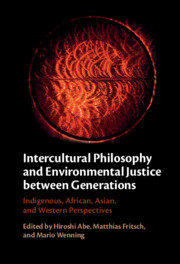 Intercultural Philosophy and Environmental Justice between Generations
Intercultural Philosophy and Environmental Justice between Generations Book contents
- Intercultural Philosophy and Environmental Justice between Generations
- Intercultural Philosophy and Environmental Justice between Generations
- Copyright page
- Contents
- Contributors
- Acknowledgments
- Introduction
- Part I Indigenous Philosophies on Justice between Generations
- Part II Intergenerational Ethics in Dialogue with Confucianism and Daoism
- Part III Humanity Facing the Near Environmental Future
- 9 Double Intergenerational Responsibility
- 10 Guidelines for a Global Constitutional Convention for Future Generations
- 11 Philosophy for an Ending World
- Index
- References
10 - Guidelines for a Global Constitutional Convention for Future Generations
from Part III - Humanity Facing the Near Environmental Future
Published online by Cambridge University Press: 14 March 2024
- Intercultural Philosophy and Environmental Justice between Generations
- Intercultural Philosophy and Environmental Justice between Generations
- Copyright page
- Contents
- Contributors
- Acknowledgments
- Introduction
- Part I Indigenous Philosophies on Justice between Generations
- Part II Intergenerational Ethics in Dialogue with Confucianism and Daoism
- Part III Humanity Facing the Near Environmental Future
- 9 Double Intergenerational Responsibility
- 10 Guidelines for a Global Constitutional Convention for Future Generations
- 11 Philosophy for an Ending World
- Index
- References
Summary
Humanity is currently in the grip of deep institutional denial concerning the adequacy of its institutions for dealing with serious intergenerational challenges, such as global climate change. In response, we should call for a global constitutional convention focused on developing new institutions to protect future generations and further their interests. This chapter presents ten initial guidelines for how to construct such a global constitutional convention. Although each follows as a fairly modest and natural inference (a ‘baby step’) from the purposes of the convention itself, the implications stand in sharp contrast to the status quo and to most conventional discussions of reform. The guidelines are, thus, both modest and radical. As a result, the global constitutional convention is, perhaps, just the kind of realistic utopia that we need.
Keywords
- Type
- Chapter
- Information
- Intercultural Philosophy and Environmental Justice between GenerationsIndigenous, African, Asian, and Western Perspectives, pp. 178 - 203Publisher: Cambridge University PressPrint publication year: 2024


